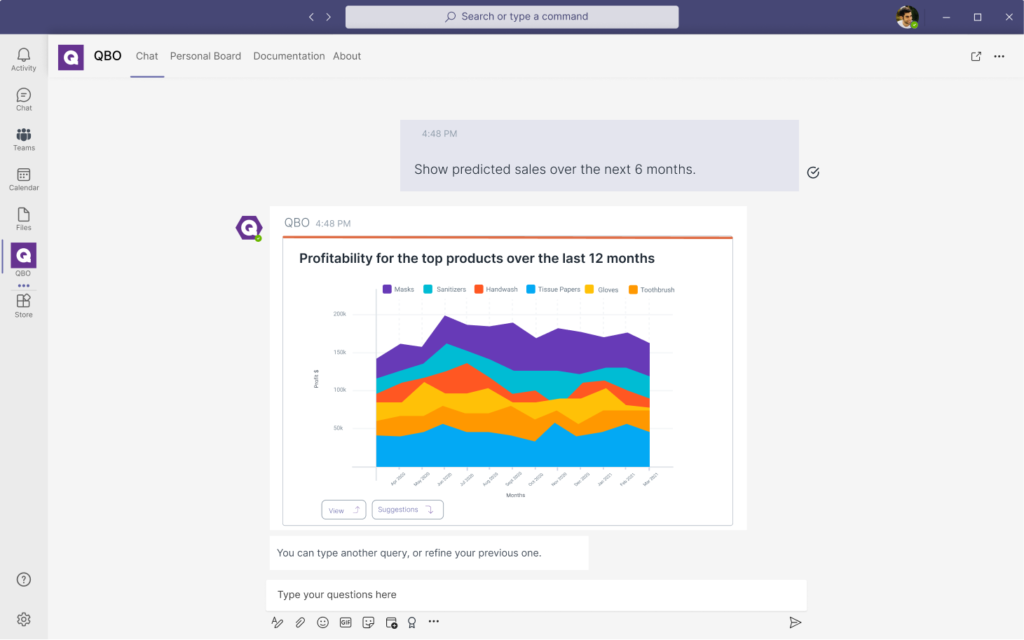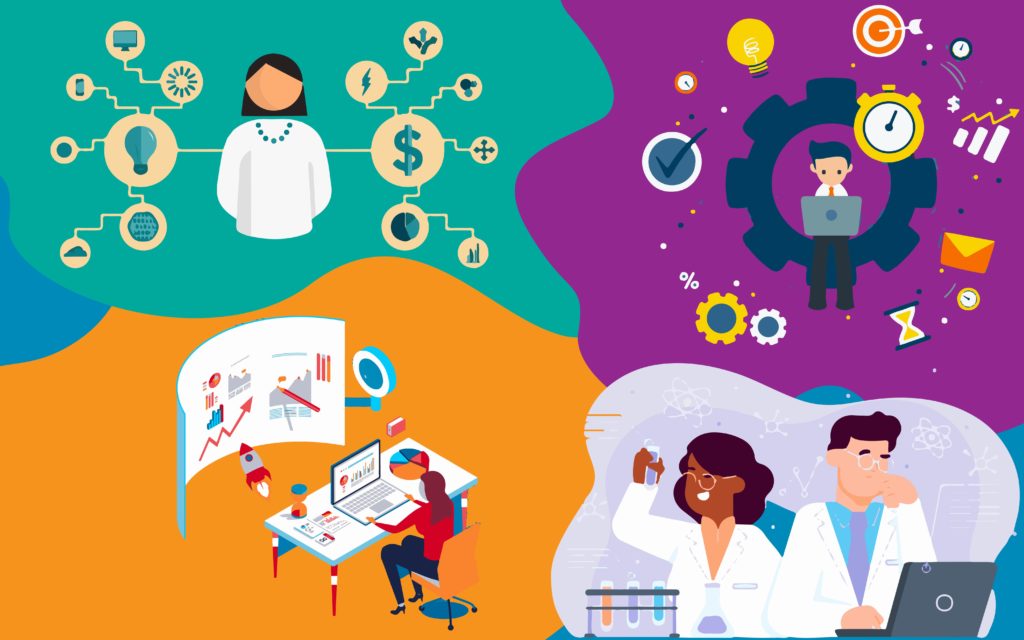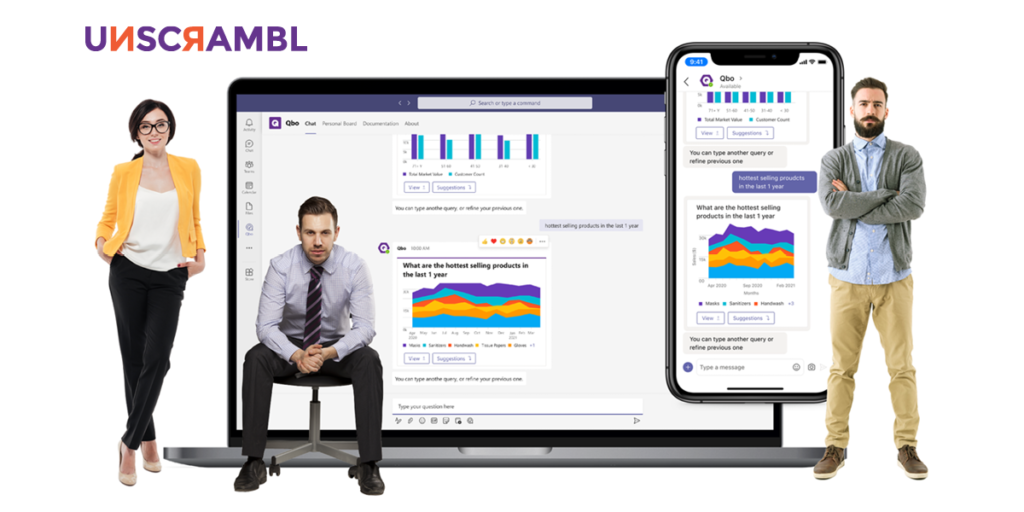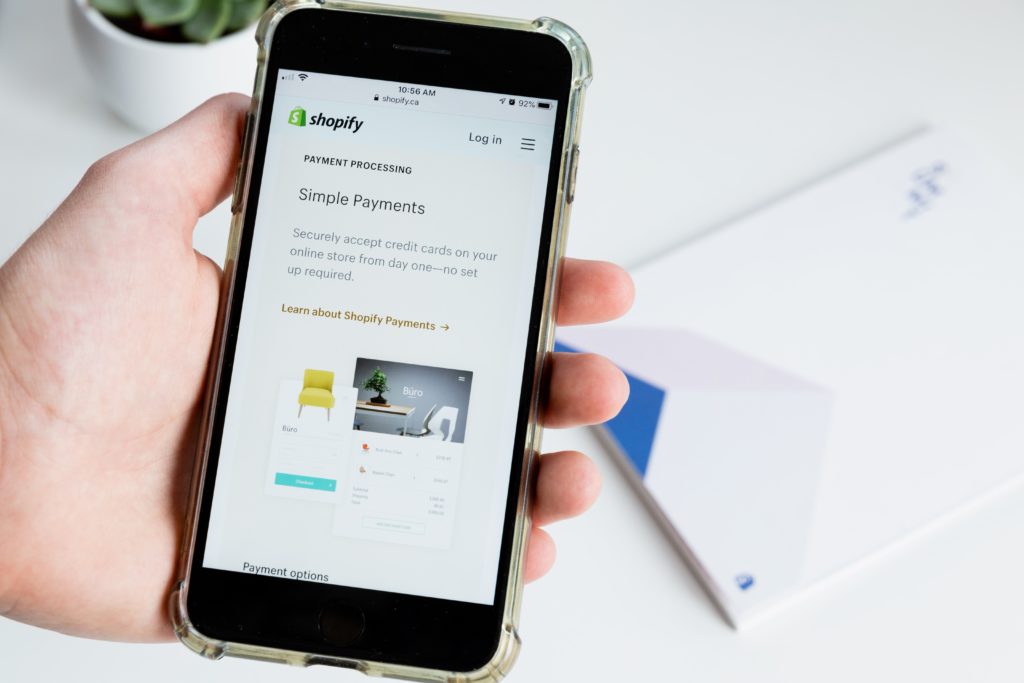 7 Minutes
7 Minutes

Rethinking Your Data Analytics Team For Tomorrow
We live in an age where data is fast becoming ubiquitous in our everyday lives. From Apple Watches to personal health trackers and calorie counters, people are actively generating data and drawing insights from them.
As people become more data-savvy, the landscape of how we access and process data is evolving – especially in the business world.
Companies today are generating data much faster than ever before, creating new and exciting opportunities for analytics teams to glean valuable insights to drive real business value.
While BI dashboards aid users with the visualization and comprehension of data, they still bring with them significant drawbacks which will only compound as the needs for real-time and deeper insights accelerate.
Thankfully, the next generation of business intelligence is paving the way for true data democratization, allowing organizations to stay innovative, optimize business operations and identify new revenue opportunities.
However, to effectively utilize them and gain actionable insights at scale, organizations will need to shift their mindsets on how data is accessed and analyzed – they will have to evolve their data analytics team.
In this article, we will take a look at how organizations can build the data analytics team of tomorrow in a world where traditional data roles & responsibilities are blurring.
The Way We Approach Data Analytics Has To Change
Traditionally, companies employ teams of data analysts and scientists working in dedicated IT departments to analyze data for insights.
However, this process is not only inefficient today, it is costing business leaders money, lost opportunities, and time to execute transformational business plans. Because of the acceleration of technology and swifter digitalization, the landscape of data analytics is changing fast.
1. COVID-19 Has Accelerated Digital Transformation Across Industries
According to McKinsey, COVID-19’s impact has driven companies to accelerate their digital products and services by an incredible 7 years.
In fact, according to a survey done by Twilio, it was found that 97% of enterprise decision-makers believed that the pandemic sped up the pace of their organization’s digital transformation.
This means industries are being disrupted. From restaurants moving towards a delivery model and manufacturers shifting towards medical products to retailers focusing more on digital experiences, the competition is innovating fiercely ahead.
To effectively stay ahead of the curve, analytics teams will need to accurately glean insights from data to make faster and more impactful decisions.
2. We Are Fast Entering The Era of 5G & IoT
5G promises revolutionary data speeds, lower latency, and higher device connectivity, this not only will change the way we work and live but also enable the full potential of IoT devices.
With over 24 billion interconnected devices by 2050, the volume of data being generated, captured, and stored will exponentially increase. While this presents exciting opportunities for companies to derive game-changing insights, this is only possible with a data analytics team with the right capabilities and skills to analyze real-time data.
While self-service BI tools with customized dashboards are helpful, they will be inadequate in the new world of limitless connectivity.
3. Business Intelligence Deployment Rates Are Still Too Low
While an increasing number of companies are utilizing business intelligence solutions, the deployment rates across organizations are still hovering around 17%, according to BI-Survey.
This means that not everyone in an organization has access to their data or a business intelligence tool. In fact, 67% of executives highlighted that they aren’t comfortable utilizing their analytics tools, underscoring a pressing concern for both data literacy and the BI tools’ usability.
Thankfully, modern BI tools such as Qbo, are changing the way users interact with their data and showing why the current analytics teams must evolve to meet the challenges of tomorrow.

How Conversational Analytics Is Changing The Way We Think About Our Analytics Team
Through conversational analytics, modern BI tools like Qbo will be able to allow users to ask questions naturally to their data, like how they would in a normal conversation.
That means anyone across the organization will have seamless access to the data to gain instantaneous insights.
Users will be able to ask direct questions such as:
“Which products are driving the most profit over the last 12 months?”
“Which service is experiencing the highest customer churn rate?”
“Which demographic of customers should we target to enjoy the lowest customer acquisition cost?”

With Qbo, organizations will be able to harness the power of business intelligence without reliance on the traditional IT department staffed with teams of data analysts and data scientists.
From data engineering to database management, conversational analytics (powered by artificial intelligence) will do the heavy lifting of data clean-up and preparation while allowing users to ‘talk’ to their data.
This means eliminating the steep learning curve necessary to analyze the data to gain meaningful and impactful insights.
Everybody in the organization is empowered to derive impactful insights for better decision-making without sticking to the traditional roles of data custodian, business analysts, and data analysts to name a few.
Through the power of Qbo, each individual, depending on their position in the organization, will have the resources and ability at their disposal to fulfill all the key roles of an analytics team.

The 4 Major Roles & Responsibilities For Your Analytics Team
The modern analytics team will have to fulfill a variety of roles that were traditionally siloed and taken care of by dedicated IT experts.
However, with conversational analytics, an individual will have everything they need to access their data and generate insights, allowing organizations to effectively develop business-focused skills & responsibilities.

1. The Chief Data Officer (CDO) – Setting The Data Vision & Mission
The CDO role combines a high-level understanding of your domain expertise with a thorough understanding of the KPIs and goals of the business.
The responsibilities include setting the analytics agenda and metrics to be measured and monitored. Not only does the CDO have to have a firm grasp of business strategy, but they will also be responsible for quantifying the impact and business benefits driven from the insights gleaned.
Because Qbo handles the work of data governance and operations, individuals can develop their CDO skills by envisioning how data can transform their organization and developing a framework for effectively deriving insights from data.
2. The Data Analyst – Solving Business Problems
Also known as the data translators, the modern data analyst is a role where an individual has to develop to directly work with the organization’s data – even if they are using a powerful BI solution such as Qbo.
They not only understand the right questions to ask to obtain the most accurate & impactful insights, but they also have the ability to translate the insights and into actionable solutions.
Through the right use of visualizations, the modern data analyst will be able to weave a compelling narrative to decision-makers (such as C-suite executives) through the power of data storytelling.
They are the communication bridge between stakeholders, decision-makers, and ground-level staff. In addition, through the mastery of their skills and responsibilities, they will be relied on to actively educate and train others on how to effectively use data & BI tools.
3. The Business Optimizer – Implementing Changes For Quick-Wins
The business optimizer’s role is to utilize the insights gleaned to drive change in their respective organizations for immediate ‘wins’.
This means identifying and resolving optimization issues that currently exist in the organization or those that suddenly occur, especially in fast-moving operations such as the manufacturing industry.
A business optimizer on the manufacturing floor will be able to swiftly identify inefficiencies in the business operations by asking questions such as:
“Which of our production lines have fallen in efficiency over the past year?”
“Which of our machines are overheating and crossing noise limits over the last 24 hours?”
The insights gleaned from these questions allow business optimizers to immediately take corrective action on the fly to optimize the processes of their department’s operations.
4. The Data Scientists – Predicting The Future & Innovating Ahead
While the analysts utilize data and insights to solve challenges in the here and now, the role that data scientists play is about forecasting and predicting where the business might be down the road.
They are innovative change drivers that look at the possibilities that might be and use data for a myriad of purposes that include identifying new revenue opportunities for the business.
To better play the role of a data scientist in a modern analytics team, individuals will have to develop their critical and predictive thinking skills while understanding the biggest drivers of change in their industry.
This means formulating and asking future-based questions based on strategic foresight such as:
“Which products should we manufacture and market next financial year?”
“How many customers will default on their payments next quarter?”
The data scientist role allows users to stay ahead of the curve by utilizing historical data to make predictions about events that haven’t happened yet but will likely occur in the future with a good data-driven probability.

Build Up A Modern Analytics Team With Qbo
At Unscrambl we believe in helping organizations build the analytics team of the future. That’s why we developed Qbo, a conversational analytics tool that enables the true democratization of data.
With Qbo, organizations can focus on developing the domain expertise and critical thinking skills of their teams and spend less time on the intricacies and repetitive tasks of data preparation and processing.
Embark on a 14-day free trial and experience the benefits of actionable insights and better data-driven decision-making across your organization today!


